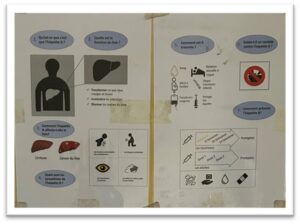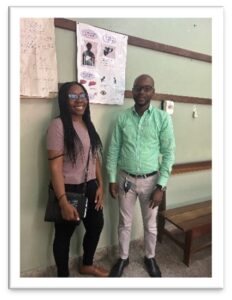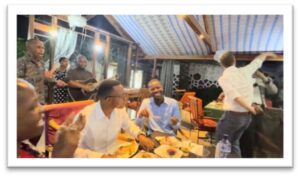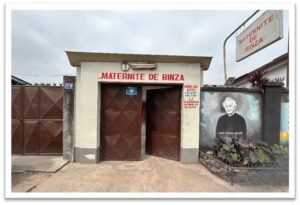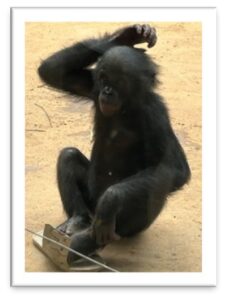Hello everyone! My name is Lauren, and I am a Master of Public Health candidate in the Global Health concentration. This summer, I am completing my practicum with the Center for Training and Research on Substance Abuse – HIV (CREATA-H) at Hanoi Medical University. CREATA-H runs the SHP Clinic which provides counseling, examinations, screenings, and treatment for sexually transmitted infections (STIs). While the SHP Clinic is named after “Sexual Health Promotion” in English, their name in Vietnamese is “Song Hanh Phuc” which means “happy life.” The SHP Clinic offers free pre-exposure prophylaxis (PrEP), an oral drug taken to prevent HIV infection, alongside free STI screenings and health monitoring to over 5,500 clients in their PrEP program.
It is mid-July, and I am 1.5 weeks into my time here in Hanoi. I was delayed in my arrival by the visa application process; however, I am grateful for the extra time I had to learn more about the context of HIV and PrEP in Vietnam. The values of quality preparation and adaptation have been a theme as I’ve begun my practicum. My first objective was to conduct a descriptive analysis of the PrEP program, which included talking with clinic staff, wading through clinic data, and reviewing PrEP materials in the SHP Clinic. This experience will inform my evaluation of STI screening activities within the PrEP program over the next few weeks. As I refine my evaluation plan, I incorporate the team’s feedback and adapt my plan accordingly. The CREATA-H team has been incredibly supportive, and I am grateful for their insights and recommendations.
Preparation and adaptation have been a major part of my life as I adjust to the busy streets of Hanoi. During my first week, while suffering from jet lag, I woke up with the sunrise. I started taking walks in the morning to take care of my own health and avoid the summer heat. On my walks, I join hundreds of the city’s residents, from children to older adults, in exercising around a nearby park and lake before they begin their day. As with my projects, taking time to prepare before our workday is important and is something I have enjoyed participating in here.
I am looking forward to engaging with the team and delving into the STI screening data in the coming weeks!
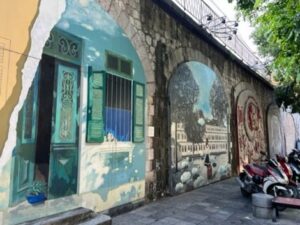
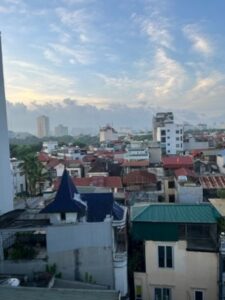
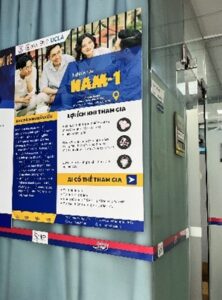
Lauren

